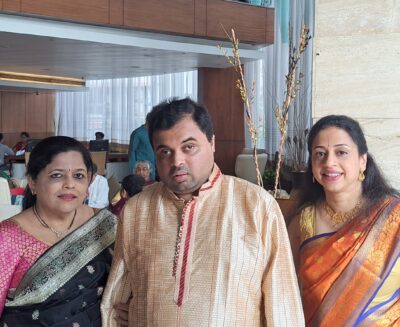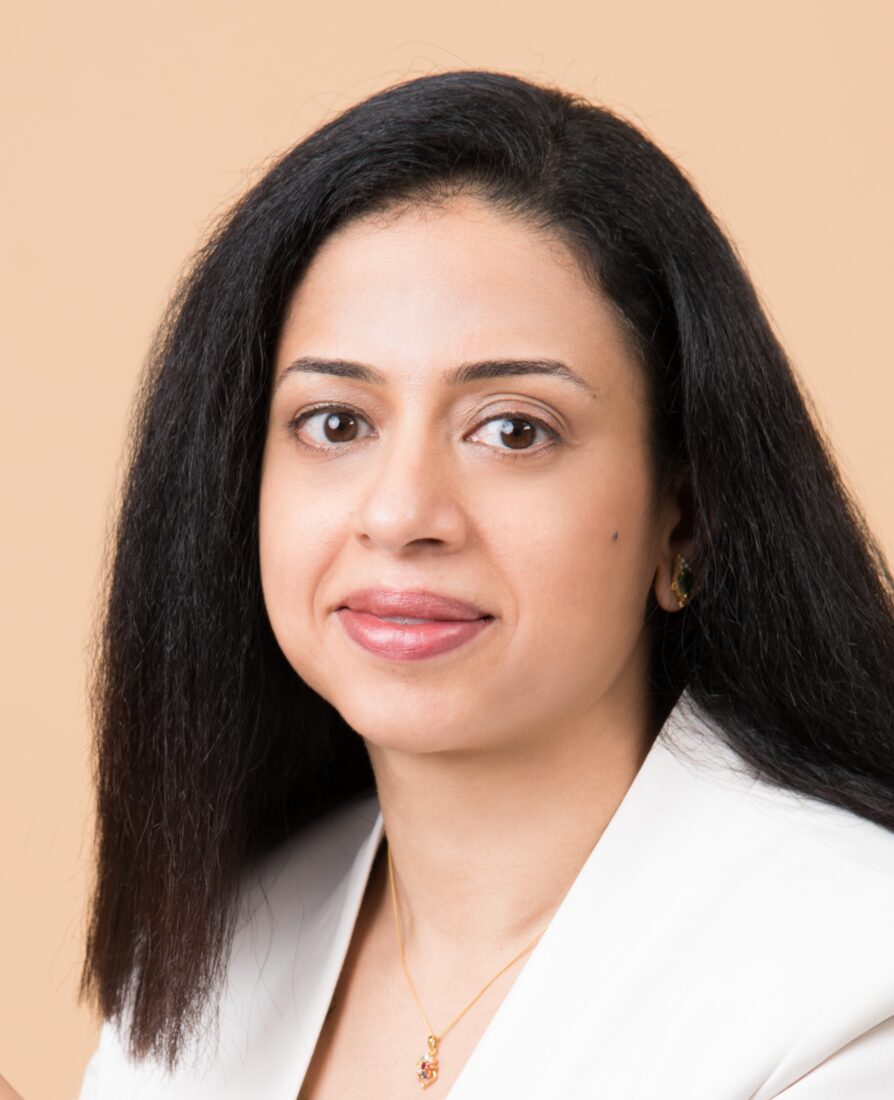
August 1999 was a sunny, humid day in the midst of the monsoon season in Mumbai. Dressed in my crisp yellow salwar kameez, a traditional garment that I seldom wore, the long tunic, loose pyjamas and the scarf across my chest made me look older than I was. That was the express purpose, I thought as I rang the doorbell. I had done house visits before, and in these initial few years of practice, I was blessed with much success. But this was different.
A lady with a glowing complexion and a neat beige silk saree opened the door. With a straight face and a mild frown, she said, “Come in, Dr. Sonal. Thank you for coming. Do you think you can help my son?” The last sentence had a hint of cynicism. I smiled bravely and told her I would need to see the child first. “My mother-in-law’s friend convinced her that you would be the one to help Jai. She made the appointment”, she continued in the same tone. She warned me, “He might spit, bite, swear or become violent. Are you ready to see him?” I nodded in affirmation as she led me to the room.
The dimly lit room was sparsely furnished with a bed and blue curtains on the window. 14-year-old Jai sat in the centre of the bed, rocking violently, his eyes bobbing from side to side. Intermittently, he would flay his arms outward, grimacing and shouting abuses. The curtains were drawn. It didn’t matter to the boy as he was blind from birth. His loving grandmother sat with him at the foot of the bed. A sweet smile was on her face, and she was holding him with affection and determination. I was thankful.
His foul verbal tirade grew louder. Most words were in the local street- slang Marathi, a language not spoken in his home. The tension in the room was thick. I made an effort to stay calm and confident. “Dr Sonal is here to meet you. Say hello Dr. Sonal.” his grandma said. He greeted me with a robotic version of the same sentence. Strangely, I hadn’t heard anyone speak like that before.
Returning his greeting, I asked him a few basic questions. With some prompting, he answered in the same monotone voice, interrupted by sardonic sneers and hand flapping. He screamed absurdities again. His grandmother apologised as she turned to Jai and asked him to sing his favourite bhajans. His demeanour changed as he began to sing these catchy holy songs.
Part of a pious Hindu family, Jai had, in the past, enjoyed attending sermons and prayer meetings. All such outings had stopped since his behaviour worsened. Besides his innate ability to remember lyrics, Jai remembered important events in his life by the day of the week. “Wednesday!” he yelled, rocking wildly. “I met Guruji. He gave me a Kit Kat”, referring to a meeting that had happened two years before.
Suddenly, this excitement peaked as he loudly called out, “Train! Train!” I looked quizzically at his grandma. She replied that Jai had a keen sense of hearing and could hear the train whistle from the nearby train station above all the din of Mumbai traffic. They had seen the trains passing from the balcony, confirming the boy’s statement. It was through this hearing ability that he had picked up the swear words in an unknown language from the mechanics in the garage below. My eyes widened in astonishment; they lived on the 3rd floor of an apartment building in noisy downtown Mumbai. Amazing, I thought to myself. Challenged yet gifted. Emotionally inexpressive yet earnest. Troubled.
Jai had been thrown out of the blind school for his behavioural issues. He had begun to spit, push and pull off his clothes. Repeated warnings, counselling and antidepressants for his violent and lewd behaviour had not helped him. Finally, he stopped going. He had been living with his grandmother for the past few months and would go to his parent’s place across town on the weekend.
“I want him to be with us but it’s difficult with both of them” said his mom gazing at her Five year old daughter doing cartwheels in the living room. His loving and perseverant mother had tried all possible therapies to help her son.
I began to understand her initial reaction. It was from past negative experiences, hope and an aching heart. Every parent wishes the best for their child. Parenting a child with challenges is one of the most difficult tasks in the world. Jai had multiple challenges. “Taking him down to the car is a nightmare. All the therapists I’ve hired have stopped coming”, she said. I made a note of his behavioural issues and his homoeopathic history – food cravings, aversions, preferred room temperature, sleep and bowel pattern.
As I left, his grandmother pleaded. “Dr. Sonal, please help him. He’s a good boy. My old friend said you helped others.” Swallowing nervously, I smiled at her. Indeed, with the homoeopathics, I had helped children with different issues – physical and behavioural. Jai was someone unique. I looked at her and suggested that after the first prescription, we follow up once over the phone, and then Jai could be brought to the clinic. His grandmother nodded with a sigh, half believing, half hoping that it was possible.
Driving back to the clinic, thoughts of Jai went through my mind. I really wanted to help him. One thing I’ve learnt from all the children I have treated is that each child has pure love in his or her heart. An inability to express that affection or strong negative behaviours should not be mistaken for an absence. It’s there, and we have to help it shine through. Usually, with homeopathics, I find the child becomes more expressive, and their personalities blossom. That night, I sat down to homoeopathically analyse and repertorise Jai’s individual peculiar symptoms. One homeopathic remedy came up strong. It was known to help in neural hypersensitivities and lewd and violent behaviour. Jai started on it the next day.
Ten days later, his grandmother called. She sounded cheerful and said the trip to the car on the weekend had been better. Jai seemed enthusiastic about coming to meet me at the clinic. She worried that Jai may disturb my other patients in the waiting area. Well, there was one way to find out, and it would be a good way to gauge the progress.
That Friday, I went down to the waiting area to observe Jai. The rocking was not as intense. He continued to flap and swear. Upstairs in my consulting room, Jai seemed calmer and more responsive. The conversation was sometimes interrupted by grimacing and swearing. At the next follow-up two weeks later, his grandmother said he was well enough to go to the park, and he seemed to enjoy talking to other people. She was very happy with the progress. Jai himself seemed peaceful and happy. The swearing had disappeared, and he was smiling more. We planned to meet a month later.
Soon after Jai left my consulting room, my colleague Meenal, a speech and language pathologist, and her mother entered. I had been treating her mother for an allergic cough. Meenal, well respected for her work with children with special needs, was giddy with enthusiasm. “Did you see that? Did you see how different that boy is!”
Before I could answer, Meenal went on to explain that she and Jai had been waiting together for their appointments for the last two follow-ups. “His rocking has almost gone away. There’s no echolalia this time. I went up to him and had a conversation with him. He is fantastic! Do you know what you have done!”
“I helped a boy with behavioural issues,” I replied. “No, it’s much more than that. After the clinic, come to my place. I’ll give you some of my books to read. You are going to help more children,” she said, brimming with enthusiasm. That night I went home with a stack of books on every issue, from Autism to sensory integration to ADHD.
Meenal was a hard taskmaster, and I’m thankful for it. She referred her patients to me, and we kept track of their improvements. We studied the effect of homeopathics and the child’s learning curve during her sessions with them. Before homeopathic treatment and along with homeopathics, the improvement patterns were similar. The sensitivities came under control. Children with social issues became more social; speech became more spontaneous, and auditory receptivity improved. The results have been consistently good.
Jai opened up a whole new world for me in using homeopathics for different developmental and neurological issues. He improved so much that he went to live with his parents and began visiting his grandparents on the weekend. He began training with a therapist, listening to music shows on TV, and he became more passionate about his singing.
A couple of months later, I sent him an invitation to my wedding reception. His mother called and said he was really excited, as it was the first time he had received an invitation in his name. Sure enough, there he was, the first person to climb up onto the stage to wish us. He was well prepared and wished us without any prompting. While I cherish the silver peacock Jai gave me as a gift, he gave me much more.


Dr. Sonal Hattangdi-Haridas
Dr. Sonal Hattangdi-Haridas is a multi-award-winning Nutritional Medicine Specialist and Homeopathic Physician whose comprehensive approaches have earned the respect of medical and allied health professionals worldwide. To date, Dr. Sonal is best known for her dynamic analysis of attention issues, sensory disorders, anxiety, eczema, gut, hormones, and lifestyle imbalances. In addition, for merging her deep clinical knowledge with a pragmatic application of nutritional knowledge, earning her first prize at the JASM 2024 of The Hong Kong Paediatric Society. Dr. Sonal is passionate about promoting healthful living and ultimately conceptualizing positive impacts within the industry and throughout the community.
